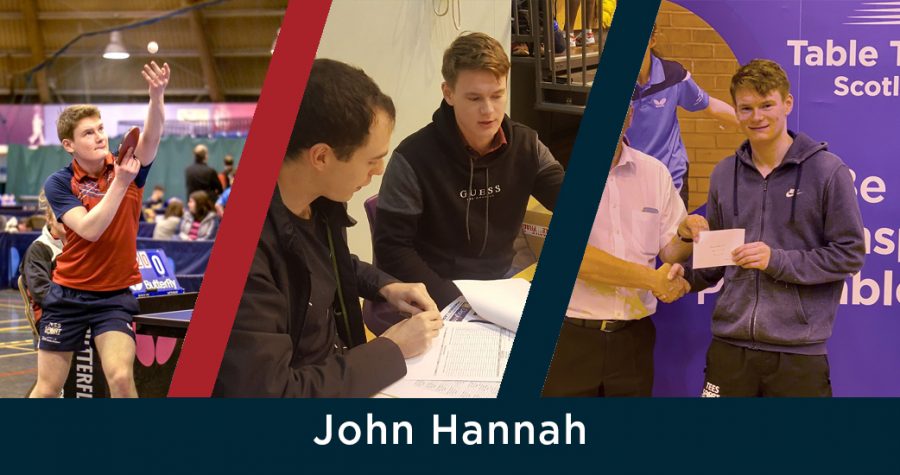Q&A – John Hannah
John Hannah has been a prominent member of MTTC for nearly a decade. He was part of a strong group of kids that also included the likes of Calum Morrison & Jamie Crawley. The three of them picked up the Handicap Cup for ESC in 2012-13 with a combined age of 40 (a record at the time). John made rapid progress through the ELTTL, representing ESC for 3 seasons and then MTTC I in 2015-2016. His breakthrough ELTTL season was 2013-14 during which he won the Mike McLaren Quaich (and was runner-up the following year) and picked up the Mike Allison Shield as leading junior in the ELTTL.
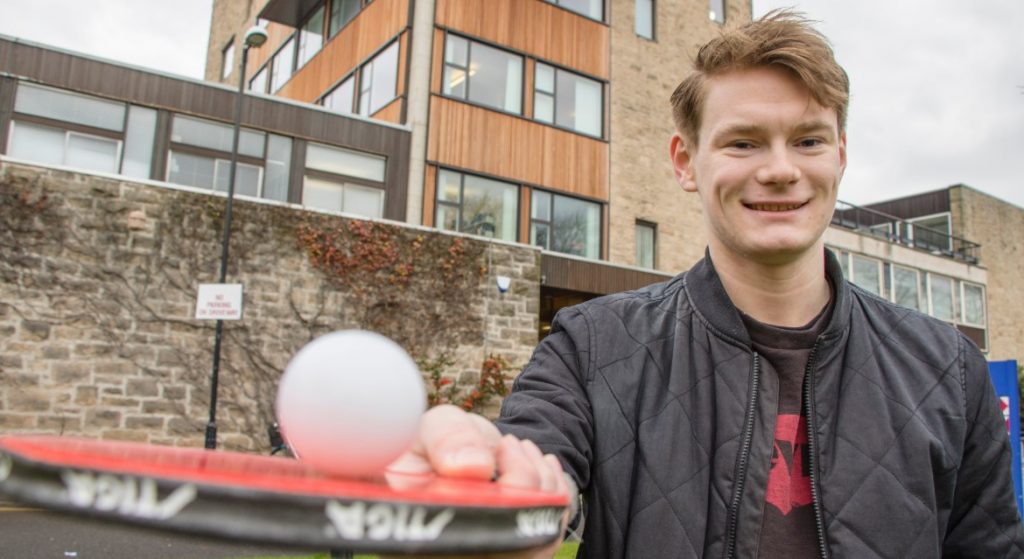
Since beginning his medical studies, he’s been heavily involved in Dundee and Dundee University table tennis. In recent years he’s really got involved in coaching at Murrayfield and also in Dundee, coaching a number of juniors. In 2019 he ran a highly successful junior summer school at MTTC and also got involved in tournament organisation (top table duties at one of the Edinburgh Banded events).
When in form his play is characterised by dynamic attacks on both wings and a particularly strong service and return game. In November 2019 he made his senior international debut versus Northern Ireland. John had a particularly good SNL campaign last season, playing at No. 1 for Murrayfield A. His victories over North Ayrshire A’s Chris Main and Zak Wilson in the final match of the season was a particular highlight. In the 2019-20 National championships he reached the quarter-finals. John is also a proficient (sandpaper) ping-pong player and has been a regular semi-finalist (and one time finalist) at the Scottish Ping Pong Championships, as well as twice winning the Murrayfield Hardbat Trophy.
Q&A
▸ When and where did you start playing table tennis?
▹ The first time I played TT was on holiday in France – it rained thirteen days of the two weeks – the only thing under cover was the Table Tennis room and the bar. Being eleven, wine and cheese night was not an option for me so you can guess where I spent most of my time. Then that year I played at my school club and played a boy who played for Edinburgh in my age group and nearly beat him. So then I started coming to Murrayfield on Tuesday nights beginner sessions and took it from there really.
▸ What interests you and excites you most about table tennis?
▹ I really do enjoy the one-vs-one competitive aspect to it – there’s few external factors, winning and losing isn’t based on refereeing decisions or teammates, its up to you. Also, I like studying the tactics of other players and analysing the points, seeing where gains and loses occur. The best feeling in the sport is either when you see a chance to reloop from miles away and rip it past the opponent with pure power and speed, or misdirecting/surprising them with a sneaky push/block – anything that leaves them entirely wrong footed.
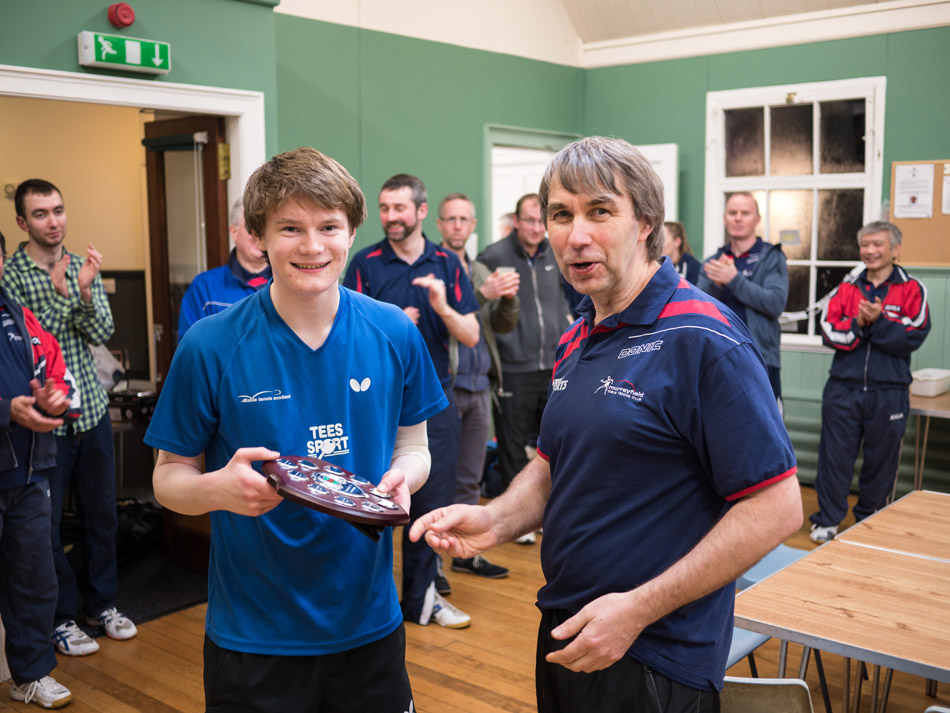
▸ Who is your table tennis idol and why?
▹ Probably a standard answer but Ma Long. He’s one of the most artistic and stylish players out there, in my view. Although he’s obviously well drilled, he seems less robotic and regimented than the other top players. I also have a huge respect for him after London 2012 where he did not play despite being world number 1, and after disappointments in his early world championships, he then went on to win in 2015 and pretty much dominate ever since, unless he’s been out with injury. He also could have stopped after Rio and the first injury, but he kept training. Of course his many other accomplishments speak for themselves. But I like many other players for their individual and artistic styles too: Xu Xin, Simon Gauzy, Koki Niwa, Joo se hyuk and Ryu Seung Min would be the ones that spring to mind. In Scotland, I really like the styles of Callum Riddoch and Charlie Ellis for their insane backhands and Gordon Muir and Jason Fleming from being the two most awkward players I have ever played against – beautiful human beings the lot of them.
▸ How often do you train and coach?
▹ Play: This year I did a less full on academic course so got three or four practices weekly usually. Plus a weekly league match. I try and play a competition once a month as I enjoy them, but I rarely travel outside Scotland for any competitions due to the money and time aspects.
But normally with medicine I need be more tactile. I don’t have time to play the league or have the flexibility to train certain times. Weeks on and weeks off is how I cope.
▹Coach: This year I took a step back from coaching during the season to better focus on my game, as this year was less strenuous academically. But previously I’ve done a plethora of things: Once weekly coaching classes for a couple years in Dundee, my own summer camps with the club and other odd weekend coaching session as well as one to ones and other bits and bobs. Occasionally I’ll coach teams for big competitions, such as interleague or nationals or the schools.
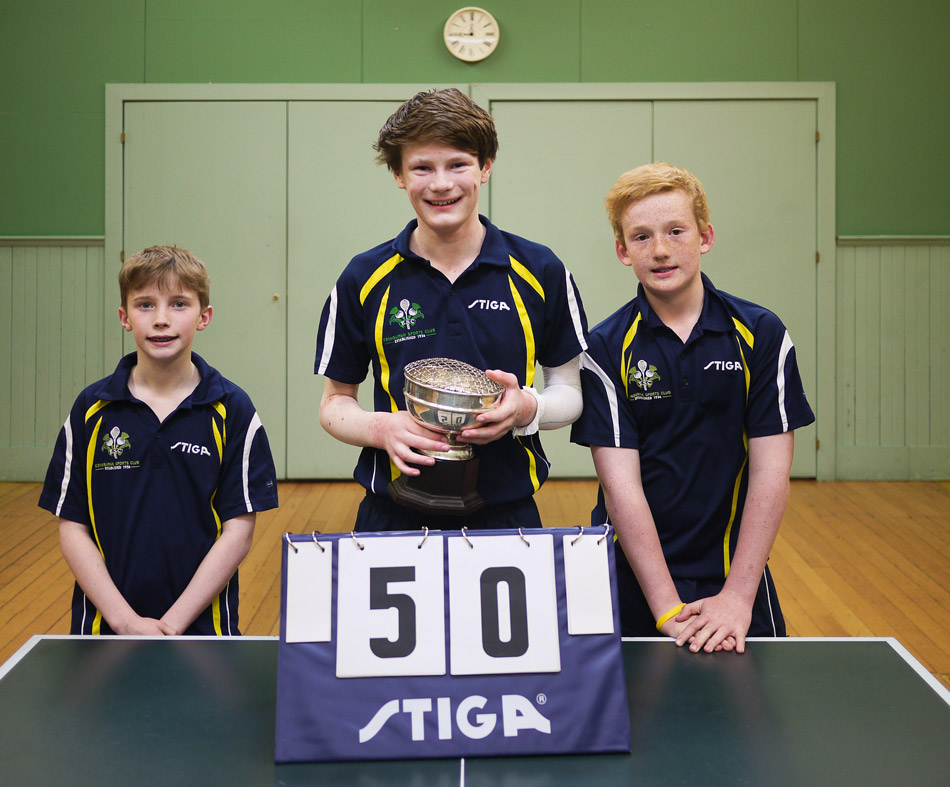
▸ What’s your favourite training exercise & why?
▹ Something I feel is key about my game is solidity on both wings. So every training session I do full table free/random with me playing back to the same place. For example, I start with backspin service and basic third ball off backspin then other player mixes blocks and counters free/irregular all over the table. I usually do it to the backhand side as I usually train for right handers, but I will do it to the forehand if I have a good lefty I need prepare for. But this is a more advanced exercise, for beginner and intermediate players I suggest starting with regular until it becomes easy, then progress to semi-irregular then irregular.
As a coach I’d say of course I also love tactical practice/training, as anyone who’s been coached by me will testify.
▸ What do you prefer to do – playing or coaching?
▹ At the moment I prefer to play at a competition because when you’re involved in a truly even match, it’s the best feeling. You get the same feeling as a coach, but to a slightly lesser extent. Also, as a player you have more control over what happens – as a coach your influence can be limited on the outcome of the game, depending on what the player does – at the end of the day you’re an advisor not an enactor. But I enjoy both and this year, where I’ve taken more of a back seat to coaching during the season– I have found I’ve missed it.
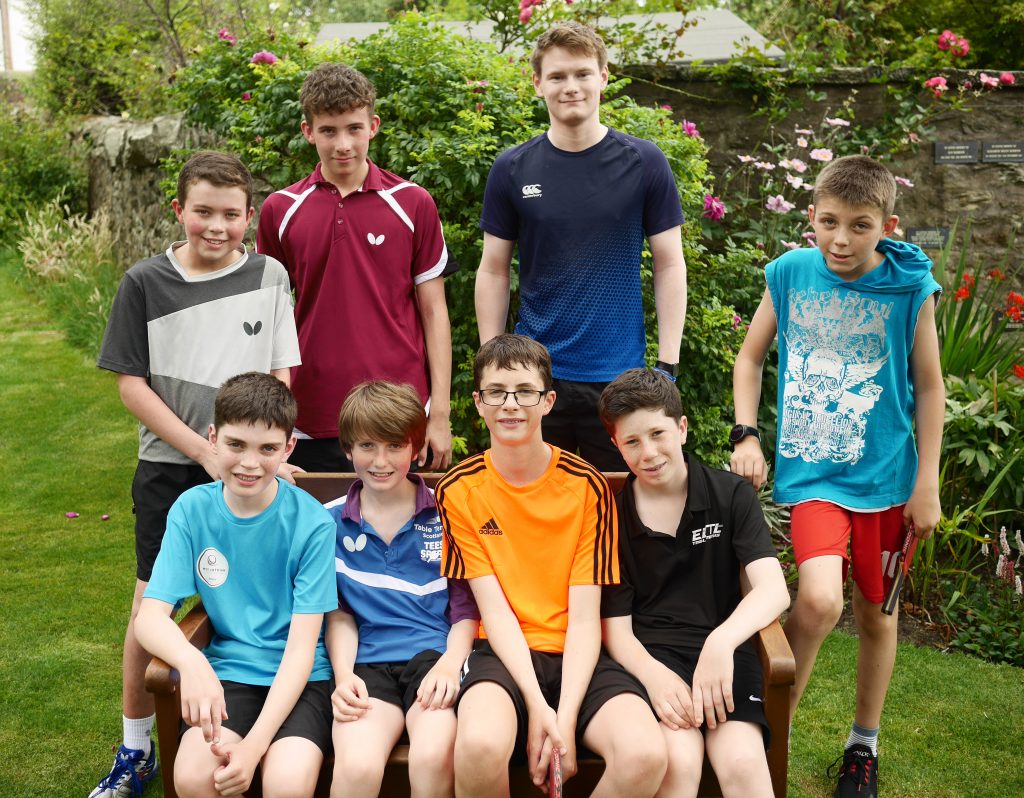
▸ How do you think you have developed as a coach? Who has influenced your coaching?
▹ I’ve definitely improved over the past few years since I started properly coaching – which was about five/six years ago. I think now I focus on consistency and persistence with the idea that needs to be implemented. Say there’s an issue with a player’s forehand that needs addressed. Instead of working on their forehand one time I see them and next time working on something else, I keep persisting with the main fault until it’s improved. Furthermore, I’m more aware of general presentation skills/teaching skills and non-verbal communication than seventeen-year-old me was.
I’ve had many good coaches to draw inspiration from and have taken (stolen) little bits from each. I feel I’m more suited to coaching competitive or higher standard Scottish/local players personally as I feel my knowledge and skills, especially round tactics and technique are more suited to their level. And of course as a player, it’s this level that I spend most of my time around, although not always as I’ve definitely played a few terrible matches here and there! Of course the way you approach a session for less advanced players is different.
▸ What have you found most interesting about coaching?
▹ I like getting to know a group and seeing improvements or helping them to accomplish their goals. For instance, I really enjoyed coaching team Shetland at Island Games in Gibraltar (and also the preparatory work in Shetland). The players were very keen to learn, and we had a good group. It was a good experience for me – I had to plan and select the best things to practice and prepare beforehand. It’s either that or the Murrayfield camps I’ve run the past years which I’ve also highly enjoyed. Of course other session like the Edinburgh summer sessions at the Gyle and sessions in Dundee as well as 121’s are interesting but getting to work with a group for a prolonged period of time is particularly interesting in my opinion.
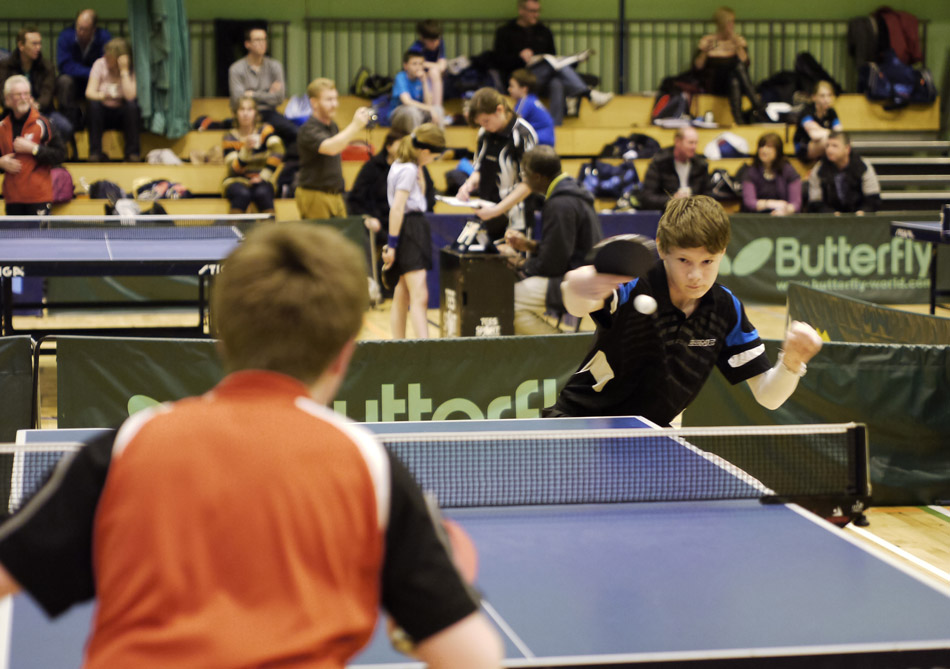
▸ What do you think is the most important aspect of table tennis?
▹ Player wise: Classic answer but I think the mental aspect is so important, especially for competitive matches. If you’re having a bad day there’s no teammates or others to reply on – it’s just up to you. “Funny rubber”, “He’s paid off the net” “I can’t play” – all excuses I’ve been known to use when I was younger really don’t help the situation – and it’s about adapting and reacting and doing the best you can. But of course other aspects are highly important too such as: Tactical, Physical and Technique.
▹ Coach Wise: Coaches can usually help anyone improve if attitude correct – again this comes under mental. I’ve never quite understood the idea of coming along for ‘easy training’ or deliberately not fully concentrating/giving ones all. Unfortunately, even at my young age I’ve seen several talented players massively underachieve (and usually stop playing) because of ill discipline and lack of drive.
▸ What is your biggest achievement in table tennis so far?
▹ I’m not sure – it’s really not something I think about a lot. Possibly, in terms of titles it was winning the under 18 Schools category against my good friend Ali Rennet and playing n1 for Scotland in our home competition. This seasons highpoint it was surely gaining my first senior cap for Scotland – even if my results weren’t as I would have hoped for on the day.
In terms of coaching successful running my own various camps and sessions is an achievement but maybe the biggest was coaching Shetland, as I’ve already mentioned, as it was a great experience and a huge privilege, so maybe that? Or it could also be argued that my dissertation this year could be my biggest achievement in table tennis. I’ve done scientific research around smashing technique and psychology and this could maybe be of more benefit to the TT community than my playing achievements.
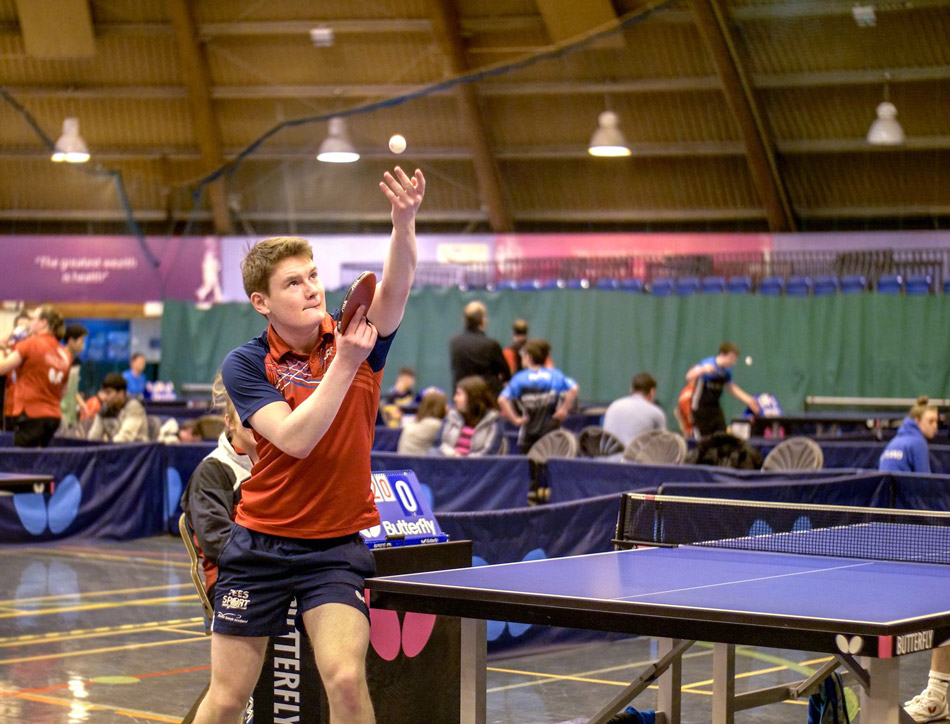
▸ What are your thoughts on last season? Happy with your performances and those of the players you coach?
▹ My performance:
TT: Good bits and bad bits – I had some good wins but probably the same number of bad losses just to even it out. Came second or runner-up in a fair few things, like the university championships; still waiting for my first singles national-level men’s tournament win unfortunately. Rankings wise as everyone knows it’s very tight – I’m not too displeased with my ranking but I know it’s everything to play for. Shame we couldn’t win the national league this year though. It’s the closest we’ve ever been. Who knows maybe all my wins will come at once.
Ping pong: Hopefully a big achievement to come soon will be finally qualifying for the world championships of Ping Pong – three years in a row now I’ve lost to Gavin Rumgay who lucky for me doesn’t have to qualify next year after getting to the semi-finals. So maybe that’s one for the future.
▹Others performance:
I’ve taken more of a step back this year from coaching to focus on my individual play so I’m less involved than previously. Three of the Dundee players qualified to play for Scotland in the Schools competition which was great and there were many successes for the Murrayfield youngster at national level as well. My league teammates both locally and nationally did well, and I think there’s every reason to be excited about the future of both senior and junior players in both cities.
▸ What’s you plan for the future?
▹ Difficult to say. I’m sure I’ll keep playing for life but at some point, it’s most like it’s going to be impossible to ‘do’ medicine and play a competitive level I’m vaguely happy with. So far, I’ve managed to keep a reasonable work-life balance, but I reckon when the work increases more, I’ll have to stop competitive play. When this happens, I will probably become a modern defender for a new challenge – and that way I won’t see my level slowly deteriorate and can still reminisce and kid myself about the ‘glory days’ when I was a semi-competent player!
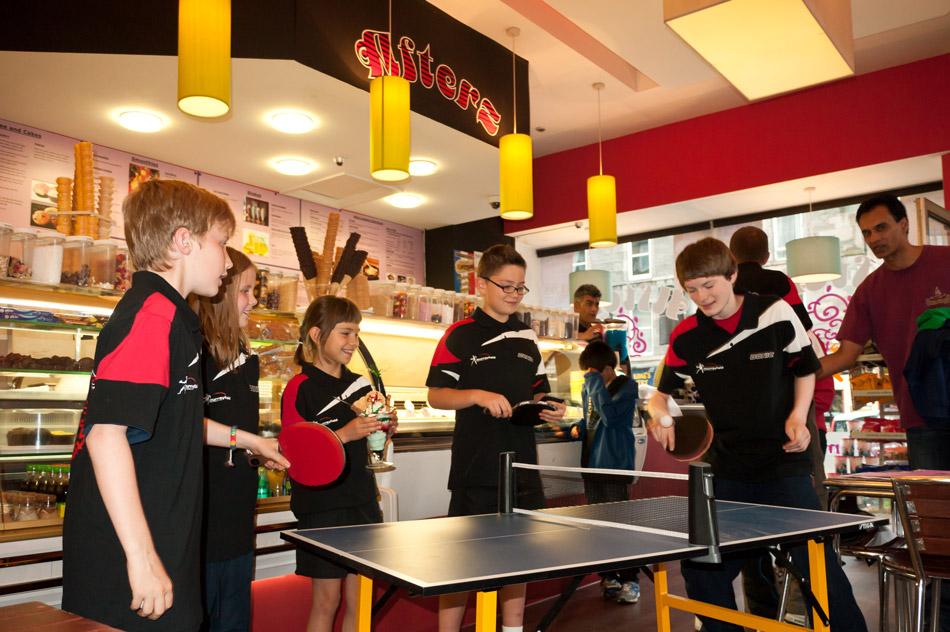
▸ Do you spend much time thinking about equipment and trying new stuff out?
▹ Not long at all actually. I don’t particularly buy into trying every rubber under the sun. Once a year, in the summer, I try out a few new blades/rubbers. But in the past five years I’ve only made two or three changes, either due to injuries/physicality or the change in the ball from celluloid to plastic. But basically if you’re not using pips/anti-loop – which I’m not – you choose either a springy European rubber or tacky Chinese rubber on either wing.
▸ What are you into apart from table tennis?
▹ Medicine is the other thing that takes up most of my time – so I guess you could say I’m into that, sort of. No but I do actually like what I’m studying which is a huge positive. Recently I’ve started playing Chess and have quite enjoyed that experience, especially with having more time during lockdown. Other activities I also enjoy are going to the gym and of course hanging out with friends although obviously those things have been challenging in recent months (partly because of lockdown and partly because they hate me!).
by Charlie Ellis
Krzysztof Borkowicz
Click here to vote for the MTTC Player of the Year ?

